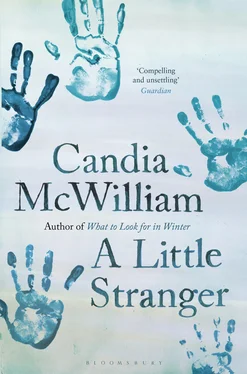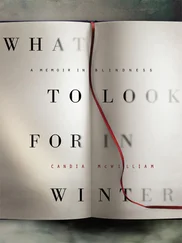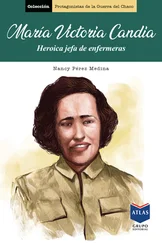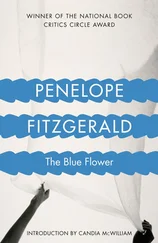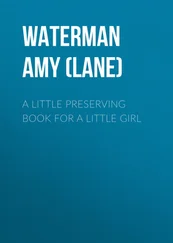Candia McWilliam - A Little Stranger
Здесь есть возможность читать онлайн «Candia McWilliam - A Little Stranger» весь текст электронной книги совершенно бесплатно (целиком полную версию без сокращений). В некоторых случаях можно слушать аудио, скачать через торрент в формате fb2 и присутствует краткое содержание. Год выпуска: 2011, Издательство: Bloomsbury UK, Жанр: Современная проза, на английском языке. Описание произведения, (предисловие) а так же отзывы посетителей доступны на портале библиотеки ЛибКат.
- Название:A Little Stranger
- Автор:
- Издательство:Bloomsbury UK
- Жанр:
- Год:2011
- ISBN:нет данных
- Рейтинг книги:3 / 5. Голосов: 1
-
Избранное:Добавить в избранное
- Отзывы:
-
Ваша оценка:
- 60
- 1
- 2
- 3
- 4
- 5
A Little Stranger: краткое содержание, описание и аннотация
Предлагаем к чтению аннотацию, описание, краткое содержание или предисловие (зависит от того, что написал сам автор книги «A Little Stranger»). Если вы не нашли необходимую информацию о книге — напишите в комментариях, мы постараемся отыскать её.
A Little Stranger — читать онлайн бесплатно полную книгу (весь текст) целиком
Ниже представлен текст книги, разбитый по страницам. Система сохранения места последней прочитанной страницы, позволяет с удобством читать онлайн бесплатно книгу «A Little Stranger», без необходимости каждый раз заново искать на чём Вы остановились. Поставьте закладку, и сможете в любой момент перейти на страницу, на которой закончили чтение.
Интервал:
Закладка:
‘I’d rather carry on as though nothing had happened. I can drive, the doctor says, and carry right on as normal.’
Was he an adequate doctor? Were not eyes sympathetic? Would she live in a slowly darkening world on account of a child’s finger? Was the awful truth not that I was not happy, not pleased, but relieved, that the harm was to one eye of Margaret’s rather than to one hair of John’s?
Her parents must care for her as I did for him.
‘Have you told your parents?’ I asked. ‘And what does your fiancé say?’
‘I’d rather keep it dark,’ she said, without a hint of irony.
So now I knew that the strange man was the doctor, the declarer of blindness.
‘Was John with you when the doctor told you?’
‘Oh, no. He sat outside with a person.’
I could hardly trouble this compulsively discreet girl for further details.
I felt in those minutes so ashamed by her calmness and goodness that I wished I could offer her my two whole eyes in return for her injured one.
Chapter 15
With my husband gone, I had to establish a regency, John the regent and I the protectrix. It was a household used to male thrall. Margaret came into her own. Without her support — beldame of the bedchamber, perhaps — I might in lethargy simply have allowed the spring days to roll on towards Easter and beyond that to my own rolling away of a stone, the birth of the baby in late April. Sometimes for hours together I would forget Margaret’s blindness; it seemed miraculously not to affect her. I could hardly understand this; several times in the night I had fallen into sleep only to awaken sharply in the dark, knowing that something terrible had happened.
But Margaret made sure that John’s time was filled. The two of them were out most of the day after school, and she was busy in the mornings, with washing and ironing and her correspondence.
I was busy with my letters too. I had finished the small editing job for my friend. I seemed not any longer to have the vocabulary to remain in contact with my former life. I feared questions, the speed at which life was lived, on salary and achievement. Yet I wanted to see my old friends and for them to see John. Perhaps when they began to have children, it would happen naturally.
So when I wrote my many letters, they were almost all to people I would never meet, and at addresses of my own concoction. I was particularly touched and impressed by ordinary people. Now, after it all, I cannot imagine how I thought such a thing existed, but then I was moved to write to old dears with birthdays, children with fearful cancers, beauty queens who were Montessori teachers, even a croupíre who had become a missionary. I had love to spare. I wrote to them in my comely writing on my blue paper with its repetitive address. I wrote from my fine desk, with its daily nosegay, and I created for them a world of enviable boundless grace, a letter from the blue. A letter from a person the recipient would never be confused by knowing. The letters were heavy because their paper was made of linen saturated and milled to the smoothness of eyelids and the ink of ground cobalt. They contained, on occasion, money.
Margaret took my letters with her own when she went to collect John from school. She had told me she wrote twice a week to her fiancé. She saw him at weekends and sometimes he drove over from where he worked and they met in a pub they favoured, which had, she said, a non-alcoholic cocktail lounge and a tropical salad bar. Each of them had a car which went with their job. Margaret was a fast, competent driver. When I asked her if it was really all right for her to drive, and at night, she replied, ‘I don’t have night blindness, if that’s what you mean.’
The remark puzzled me, not least by its naked use of the word blindness. If I had had an affliction, I was sure, I would be superstitiously wary of alluding to it in other contexts than its own solemn one. It was as though she had momentarily forgotten her truly blind eye, or as if I had dreamed it.
‘I don’t see how we’ll ever do this on less than two,’ she said to me. She was peeling grapes at the time, to put on something she was baking. Some other nannies and their charges were expected to tea. She was referring to the number of cakes the visitors might be expected to eat. She extracted the pips from the pale grapes with the previously sterilised loop of a kirby-grip.
‘What is your fiancé’s name?’ I asked. The question sounded rude. She moved to folding nibbed hazelnuts, soaked for a period in dilute green food colouring, into a cake mix poured from a box labelled ‘Creamy Dreams Flavor Release Cake’.
‘I call him Ronald.’ She did not say whether it was his name.
‘Scots or Irish?’ I asked. John was making handprints under the table, with the food colouring. One of those green fingers had blinded a person. I conspired with him by keeping silent. Margaret had not seen him. He was only using a tatty old jotter. I was making conversation.
‘Oh, nothing like that,’ she said. ‘Not a Jocky or a Micky.’
John was sufficiently absorbed not to respond to the name of the great mouse. She diminutised the ugly terms and made them sound like little puppies instead of the bad dogs of sect and race.
If she had been my equal, I would have asked her what she meant, but I thought it might appear like bullying. We are not, after all, sisters under the skin. Under the skin of us all, what you will find is fat. She might really think that Scots were drunk and mean, Irish drunk and stupid. What did that make the English? Or, indeed, the Dutch? Avuncular? Courageous? What the English were not, in Margaret’s book, was black or brown or yellow. The idea of England did mean something to her, I knew, for she loved the Royal Family and would describe things as being ‘very nice, in the English way’. She had thus described, for example, the hotel where her parents took their annual golfing holiday, in Spain. Long hair, left-wing politicians, cowardice, films in other languages, late meals, poetry, men kissing their sons, none of these was English to Margaret. Bombs were English; more than once Margaret had asked me to hire The Dambusters for her to watch on the video. She seemed not to think beyond these merry, bouncing bombs. In that story, the dog it was that died, being called Nigger.
‘My brother is like you. He went to university. He is against the nuclear bomb,’ Margaret had said to me, one day when she was regretting the untidiness of the maenads camped around the local airforce base. I was flattered when she spoke of her family to me, though surprised to learn that it was only higher education which endows a person with the desire to survive.
Of course, like most people, she flinched from bombs to avoid thinking about them. The two of us probably just flinched to dissimilar effect. I could not remember having told her my opinions and suspected she deduced them from my clothes. Anyway, she and I were engaged upon the rearing of the fodder or the dropper of the undistinguished thing.
On the third day of my husband’s absence, I was exhausted by lunch-time. All night I had read and wandered from bedroom to bedroom, seeking not sleep but a new confinement for my teeming body. I was reading like one starved. I progressed along two corridors of bedrooms, reading what I came across, changing books as I went. I dropped Eros and Civilisation for Lady with a Lapdog . I read too much too quickly and wanted really only to read long simple stories with happy endings. Can you think of any?
While we ate our lunch, I with Margaret and John since my husband’s absence, the telephone rang. I could not move quickly. Margaret took it.
‘How are you enjoying town?’
Читать дальшеИнтервал:
Закладка:
Похожие книги на «A Little Stranger»
Представляем Вашему вниманию похожие книги на «A Little Stranger» списком для выбора. Мы отобрали схожую по названию и смыслу литературу в надежде предоставить читателям больше вариантов отыскать новые, интересные, ещё непрочитанные произведения.
Обсуждение, отзывы о книге «A Little Stranger» и просто собственные мнения читателей. Оставьте ваши комментарии, напишите, что Вы думаете о произведении, его смысле или главных героях. Укажите что конкретно понравилось, а что нет, и почему Вы так считаете.
